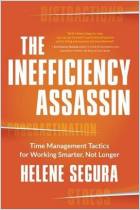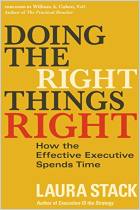Зарегистрируйтесь на getAbstract, чтобы получить доступ к этому краткому изложению.

Зарегистрируйтесь на getAbstract, чтобы получить доступ к этому краткому изложению.
Rasmus Hougaard, Jacqueline Carter and Gillian Coutts
Getting One Second Ahead
5 Mantras for Mindful Leadership
ChangeThis, 2015
Что внутри?
Time management is a vital component of success, but how can you stay focused when faced with information overload?
Recommendation
In today’s business environment, growing demands for efficiency and performance, coupled with technology that makes you contactable 24/7, more and more people are finding themselves exhausted and overrun. Rasmus Hougaard, Jacqueline Carter and Gillian Coutts of The Potential Project offer five simple but effective “mantras” to help you be more mindful in your work life and your personal life. The authors clearly explain how to focus on the present, declutter, avoid “action addiction” and meaningless “busyness,” and behave more compassionately. getAbstract recommends this article to business leaders and everyone feeling stressed from the demands of modern life.
Summary
About the Authors
Rasmus Hougaard is managing director of The Potential Project. Jacqueline Carter is director of The Potential Project North America. Gillian Coutts is a partner with The Potential Project Australia.




















Comment on this summary